Gum Disease Treatment Midwest City
Healthier Gums for a Healthier You

Gum disease, also known as periodontal disease, is one of the most common oral health problems in the United States. While many people dismiss it as a minor issue, it can lead to devastating consequences if it is left untreated! Dr. Steven Kendrick is ready to help you combat and conquer gum disease with effective and conservative gum disease treatment in Midwest City. If you believe that your gum health could be improved, contact our team today to schedule a consultation.
Why Choose Midwest City Dental Center for Gum Disease Treatment?
- Dentist with More Than 20 Years of Experience
- Personalized Treatment Plans Available for Each Patient
- Comfort Amenities to Ensure a Positive Dental Experience
What Is Gum Disease?
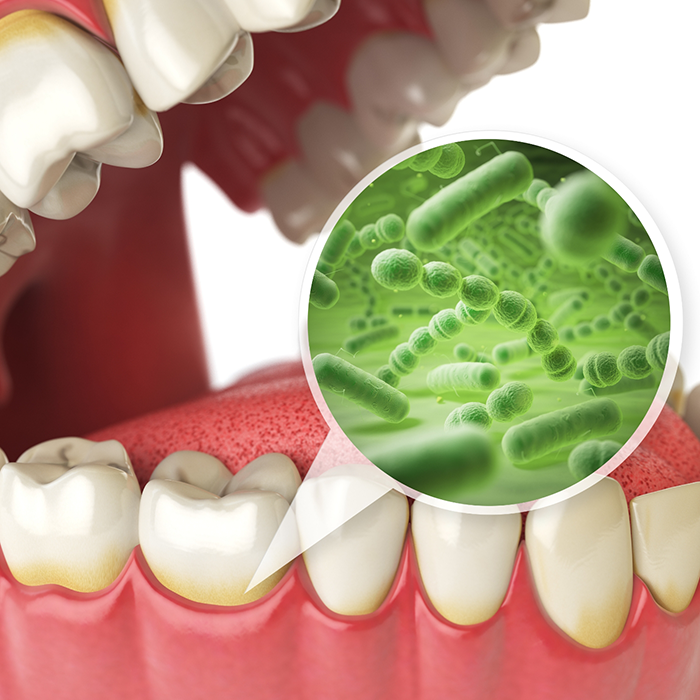
Gum disease is inflammation of the gum tissue, caused by harmful bacteria. It has two basic stages:
- Gingivitis is the earliest stage of gum disease. Its symptoms are subtle and include things like red, swollen gums and soft tissues that bleed when you brush. Bad breath is also common.
- Periodontitis is an advanced form of gum disease. It is characterized by irreversible damage to the gums and underlying bone tissue. Symptoms include gum recession, loose teeth, dental sensitivity, and noticeable pockets between the gums and teeth. Pus along the gumline may be present.
What Causes Gum Disease?

Missteps in oral hygiene are the most common cause of gum disease. For example, you are at an increased risk if you do not floss or if you regularly miss a specific spot when you are brushing. Genetics, dental misalignment, dietary choices, and underlying health conditions can also contribute to the development of gum disease. Individuals of any age can suffer from this condition, but it is most common in older individuals.
The Importance of Treating Your Gums

If you suspect that you have gum disease, it is vital that you seek treatment as soon as possible. While the condition is still relatively mild, it can usually be reversed without any long-term consequences to your oral health. However, if it remains untreated, it can lead to tooth loss. It is also associated with an increased risk of numerous systemic health conditions, including heart attack, stroke, and preterm birth.
During your regular checkups with Dr. Kendrick, he will evaluate your gum health and let you know if there is any cause for concern. If you require gum disease treatment in Midwest City, he will recommend a specific service to get your oral health back on track.
Treatment Options

In many cases, it is possible to reverse gum disease with changes to your oral hygiene routine. Our team can give you personalized coaching and product recommendations to help you fight the bacteria in your mouth that is causing the problem. We may also strongly recommend that you begin visiting us more often so we can keep a closer eye on your gum health.
Scaling and Root Planing
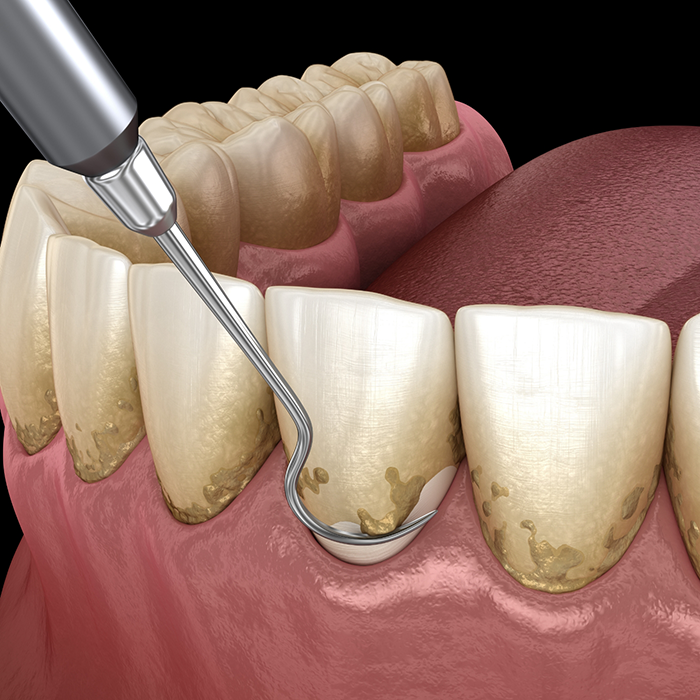
In certain cases, you might benefit from a deep cleaning procedure called scaling and root planing. During the treatment, we thoroughly clean the teeth both above and below the gumline. We also smooth out the roots of the teeth, so it is more difficult for bacteria to cling to them. Scaling and root planing gives your gum tissue a chance to heal and firmly reattach to your teeth.
Do I Need Scaling & Root Planing?
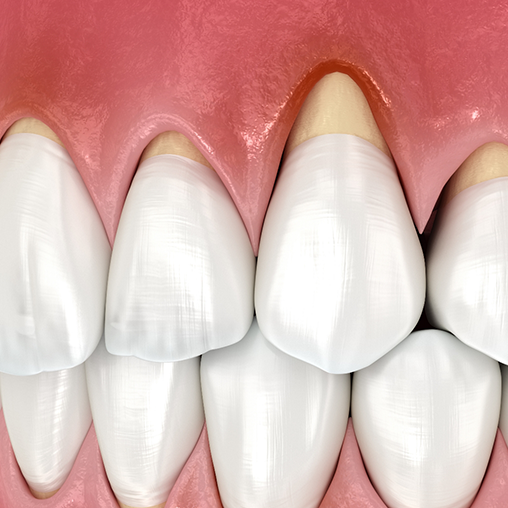
It depends on how advanced your gum disease currently is. If it’s still in the gingivitis stage, you may be able to reverse it simply by improving your oral hygiene routine; after a certain point, though, scaling and root planing might be necessary to protect your oral health.
We may suggest scaling and root planing if you have noticed any of the following symptoms:
- Gums that bleed easily.
- Bad breath or an unpleasant taste.
- Teeth that have shifted out of place.
- Gums that have receded.
- Increased difficulty while chewing.
The important thing is to contact our office as soon as possible if you suspect that you’re suffering from advanced gum disease. Acting quickly to get the care you need from a trusted expert is often the key to protecting your grin from the worst consequences of a gum infection.
The Process of Scaling & Root Planing
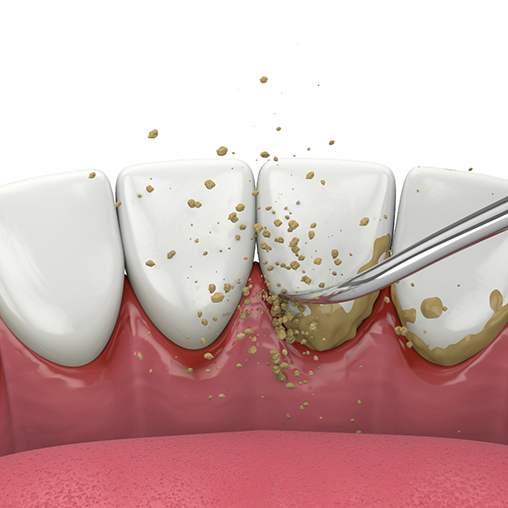
You may need to schedule two visits for scaling and root planing. During the scaling step, plaque and tartar will be removed from your teeth and gums. We will specifically target bacteria that are hiding in the gum pockets, which would be very difficult to clean using normal methods.
Next comes root planing, which involves smoothing out the roots of the teeth. This helps protect them from bacterial accumulation, which in turn lowers the chances of a new infection occurring. Also, smoothing the roots makes it easier for the gums to adhere to the teeth again.
Aftercare Tips for Scaling & Root Planing

If a local anesthetic is used for the procedure, you should hold off on eating until the numbness in your mouth has worn off; you don’t want to bite your tongue or cheek without realizing it. When you are ready to eat, be sure to stick to a soft diet for at least the next couple of days.
As your mouth recovers from the scaling and root planing process, make a point of rinsing with warm salt water every few hours. You can still brush and floss your teeth as long as you’re careful around the treated area.
Antibiotic Treatment for Gum Disease
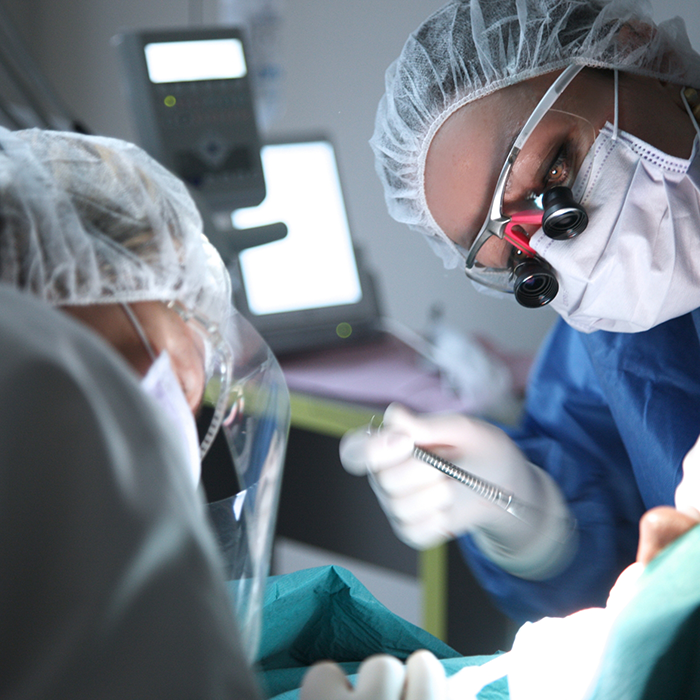
While scaling and root planing are effective in eliminating bacterial build-up, it may not reach the smallest crevices of your smile. This is why we often incorporate Arestin antibiotic treatment. With a quick application to your gum pockets, the medicine will begin to disperse over several weeks, targeting any remaining bacteria so that your gums heal properly.
Gum Disease FAQs
What Are the Symptoms of Gum Disease?
The early signs of gum disease (gingivitis) are often overlooked because they might not seem concerning, like bleeding, red, or swollen gums. Unfortunately, if the symptoms are ignored, they can progress in severity, such as gum recession, chronic bad breath, and pus pockets near the roots of the teeth. Eventually, your teeth may even loosen, shift out of alignment, or fall out. Although gum disease is preventable, it’s the leading cause of tooth loss. To preserve your smile, it’s best to contact your dentist for an appointment at the first sign of infection.
Can Gum Disease Affect My General Health?
Your oral and general health are linked to one another. As a result, untreated gum disease affects more than just your smile. The infection can enter your bloodstream through the pressure of regular chewing. As it circulates throughout the body, it can wreak havoc on your overall health. Research shows that infection can increase your risk of cardiovascular disease, respiratory infections, Alzheimer’s disease, diabetic complications, and more.
How Can I Prevent Gum Disease?
Although gum disease is common, you can help prevent it by committing to your oral hygiene at home and regular care from your dentist. It’s best to use a soft-bristled toothbrush and tartar control toothpaste at least twice a day. Clean all surfaces of your teeth for at least 2 minutes each session. In addition to brushing, don’t forget to floss in between each tooth before going to bed at night. Flossing cleans the areas between your teeth and around your gumline missed by your toothbrush. Without nightly flossing, harmful plaque and bacteria will accumulate and infect the gingival tissue.
Besides your oral hygiene routine at home, don’t forget to visit your dentist at least twice a year for a cleaning and checkup. They will look for early signs of the infection to provide gum disease treatment. You may need more frequent checkups to keep the infection at bay.
How Much Does Gum Disease Treatment Cost?
There isn’t a set rate for periodontal treatment because the cost is based on your specific treatment plan. Every policy differs, but many dental insurances offer coverage for gum disease treatment. Our dental office will file the necessary claim forms to maximize your benefits to lower the amount you pay out-of-pocket. If there’s any remaining balance, we’ll explain your payment options. We’ll help you restore a healthy smile for affordable rates.
